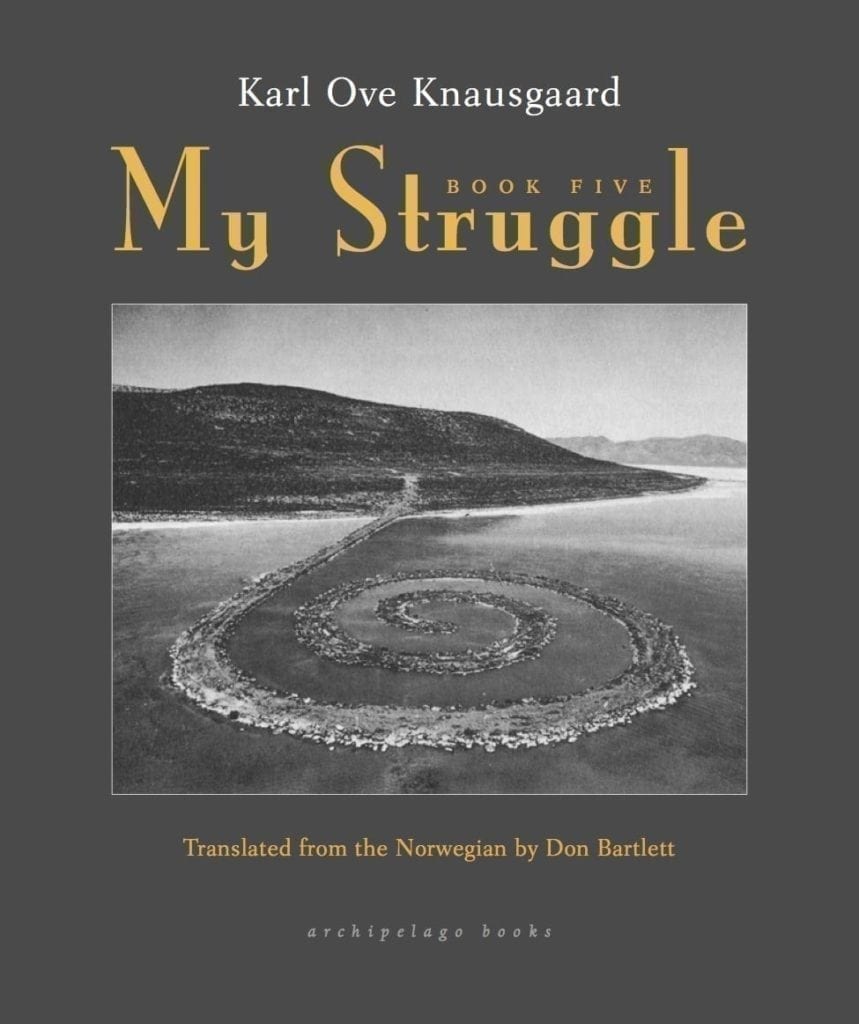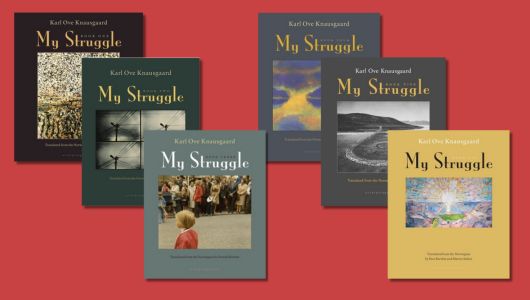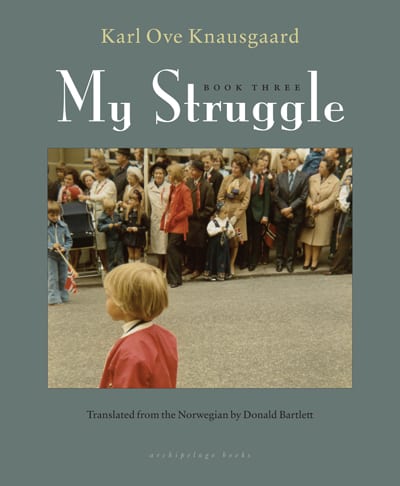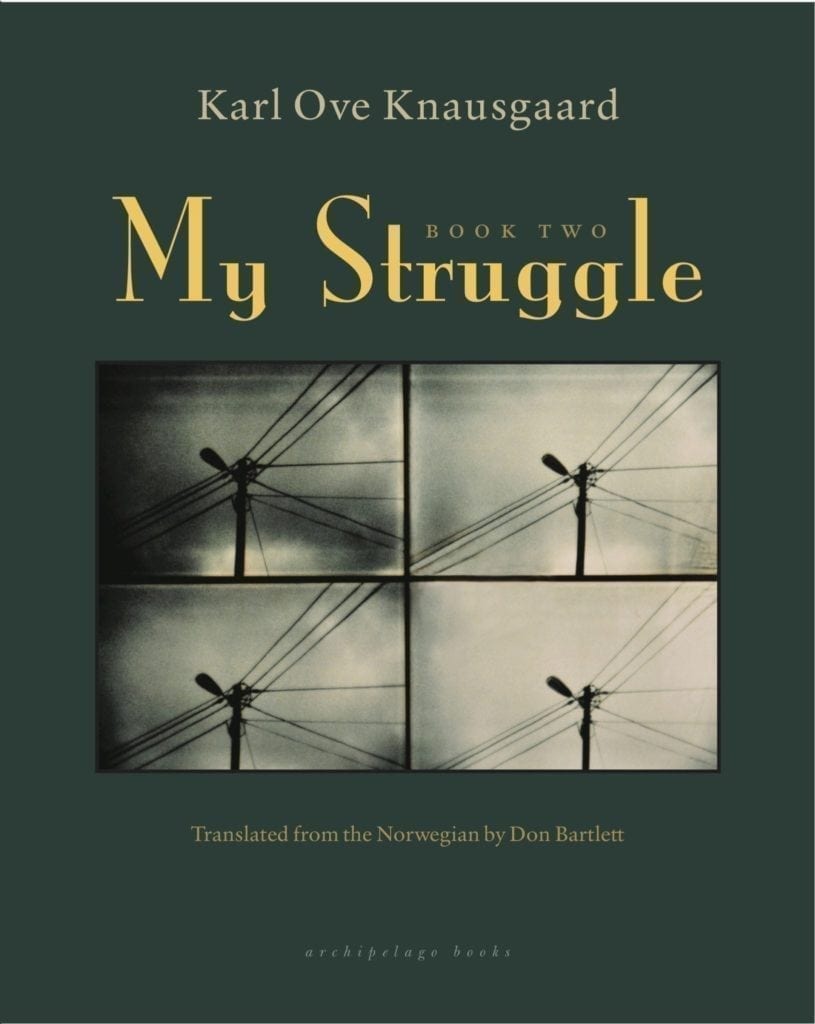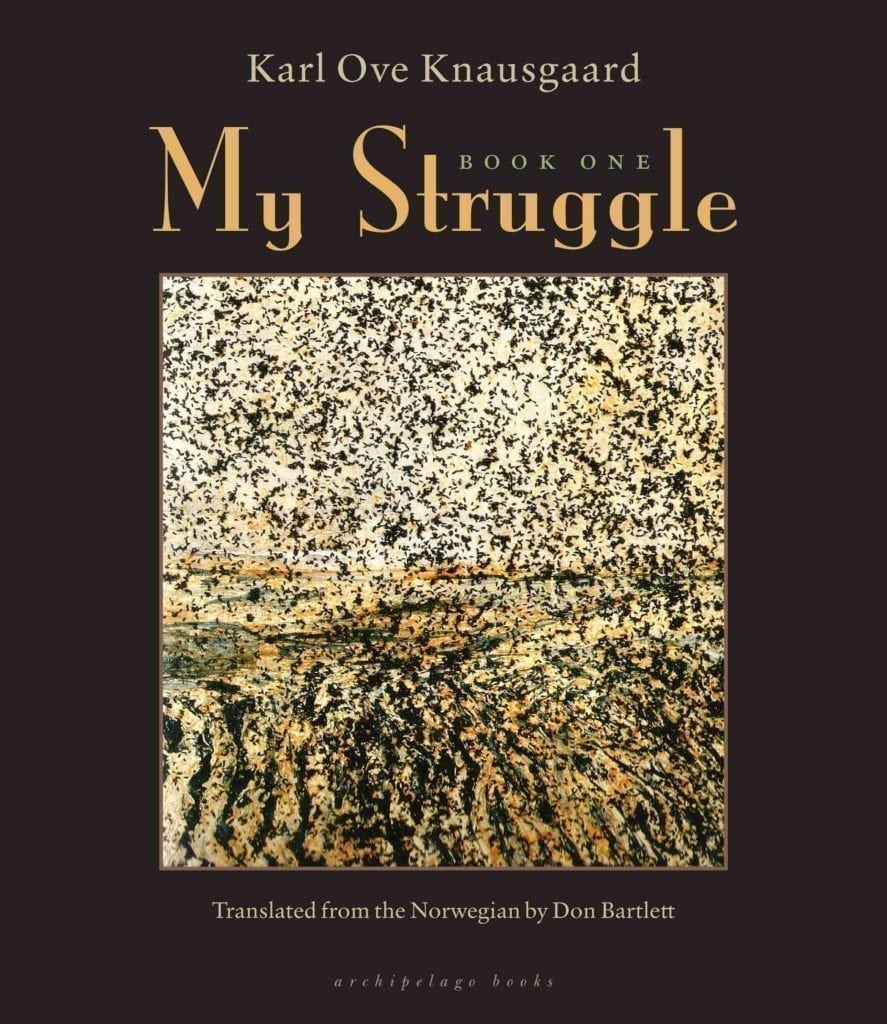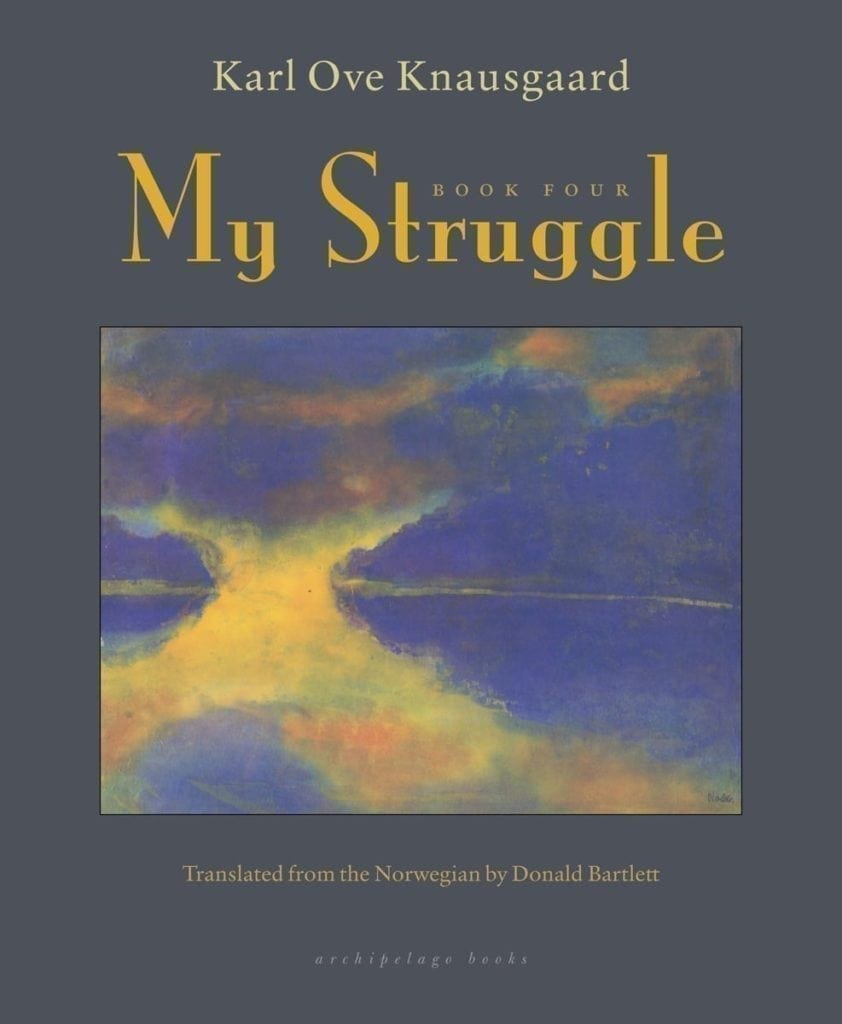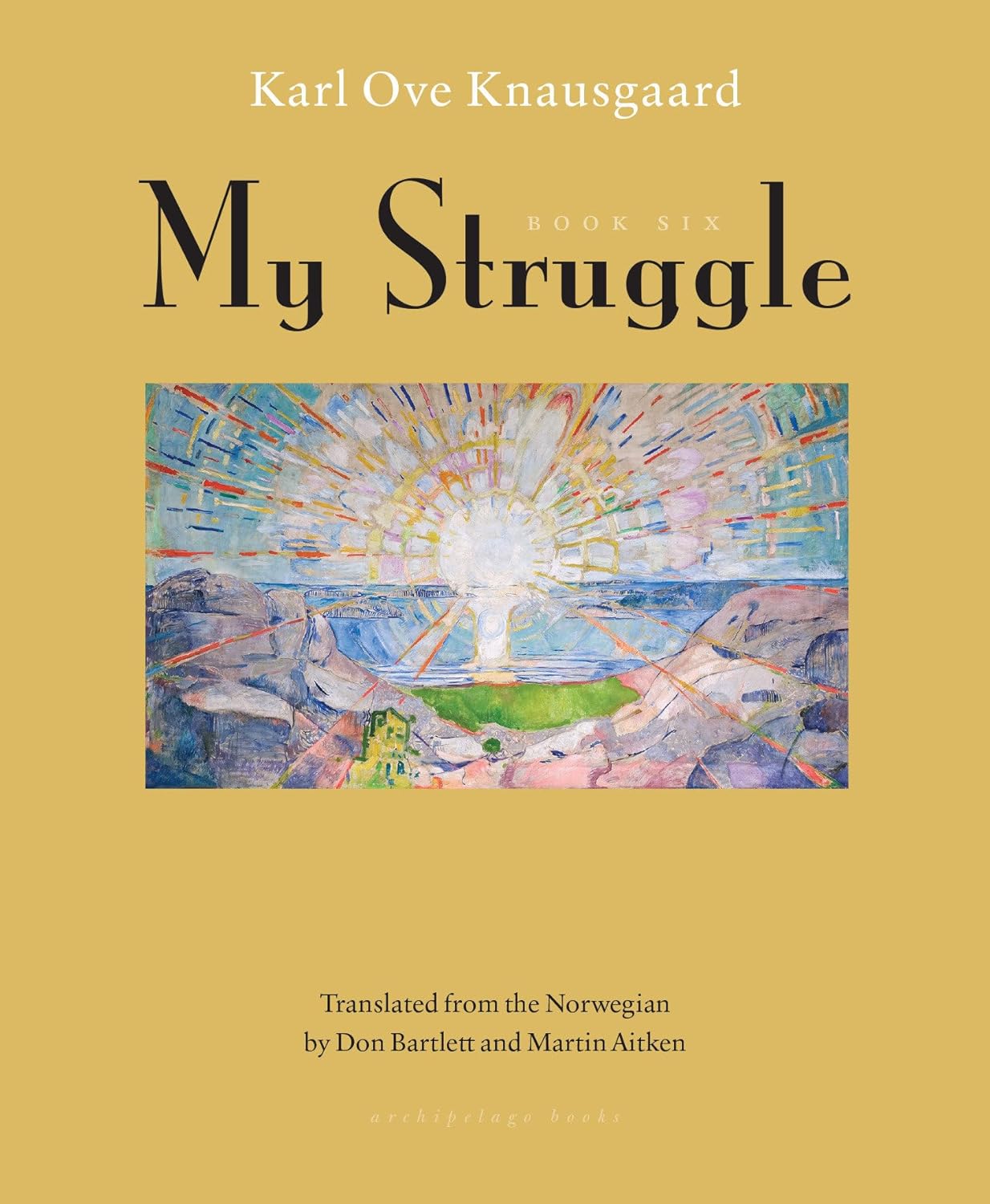Praise
Who’d have thought that the first monumental literary production of the 21st century ... would seem, on a line-by-line basis, so modest and so raw? The books in the My Struggle series fly high by flying low, by scanning the intricate topography of everyday life.
This deserves to be called perhaps the most significant literary enterprise of our times.
He's invented a new kind of narration ... The novel imagines a kind of ultimate freedom—a spiritual freedom based in radical openness. It’s expansive and impersonal, yet still human; it’s concrete, anti-ideological, and, above all, emotional. Beyond, alongside, or perhaps within the quest to know oneself, there’s a quest to know the universe.
The limbo that Knausgaard essays in this book is, like so much of his life, particular to him but also highly familiar to everyone else ... He’s the rare writer who has made self-absorption work for him.
My Struggle, by volume five, is so dense with detail that much of it is necessarily forgotten. And yet it is lost in a way similar to how many of our days and hours are lost, only to return in sudden moments of recollection. Knausgaard has thus gifted us with a set of novels that matches the shape and texture of our pasts, in which the relentless accumulation of fictionalised days dramatises, better than any novel I have read, the experience of living in time. It is a pen-and-paper virtual reality; after reading it you feel that another past has been downloaded into your mind.
Replicates the vivid, overwhelming sense of being alive on the page . . . We may all be hooked on Karl Ove’s past, his triumphs and disasters, glory and silliness, but his struggle is our struggle, too – for meaning, love, and friendship in a world beautiful and baffling.
[G]ut-wrenching ... expressed so openly, so unguardedly, that we are consistently disarmed.
Seems to defy [the] rules of good writing.
[T]he eerie thing is that, at times, it is as if we are not within the pages of this book at all, but outside it and in his confidence. We understand that [Knausgaard] is ambitious to write a novel that will make his name and we suppress, as we read, the acknowledgment that this achievement, this extraordinary work of which he has been dreaming, is the book we hold in our hands.
You’d expect this to be boring. It isn’t.
Fans of Knausgaard’s indulgent style will revel in every last beer can and krone as the closing chapter of this infamous Norwegian saga approaches . . .
Amusing episodes coexist alongside weighty, meditative, and essayistic passages on art and literature . . . Those who have come this far in the series will not be disappointed by book five; it is a pleasure to witness the gradual emergence of a dedicated artist over the course of a decade.
[A] bildungsroman about literary victory snatched from drunken self-loathing.... An admirably seriocomic look at a headlong leap into maturity.
There were moments when I wondered who was the better comparison: Wordsworth, for the ways that nature bent to Karl Ove's mood and past selves composed and recomposed themselves in his recollection, or Harry Potter, for the readable, epic soap opera about a young student learning to wave his magic wand about. Few writers create so confidential a bond with the reader, at times uncomfortable, unwanted but also undeniable. Occasionally I fancied him an old friend. An infuriating, unstable, self-obsessed and well-read friend who outstays his welcome, admittedly. But a friend nonetheless.
[O]nce again, Knausgaard’s storytelling is a masterclass in clarity and intensity. The litany of quotidian detail is strangely mesmerising, even gripping ... [My Struggle: Book Five] is a lengthy journey, a bumpy ride full of pitfalls and setbacks, but one that shapes its protagonist and transports its reader. Knausgaard may only present fictionalised events, but on each page, and in every detail, Karl Ove pulses with life.
The most complex work of the My Struggle series yet translated into English ... [D]eeply compelling
The experience of reading Karl Ove Knausgaard is an extraordinary one. His eye for detail and for all the little byways of thought and feeling are unsurpassed.
PRAISE FOR THE MY STRUGGLE SERIES
Knausgaard's command of the traditional novelistic procedure is the reason these books are the opposite of dull, though on the face of it they should be. Knausgaard is always spinning a tale, always drawing the reader along with some romantic entanglement, sexual disaster, or emotional crisis. He feeds in atmosphere in just the right amounts; his pacing is flawless. How wonderful to read an experimental novel that fires every nerve ending while summoning in the reader the sheer sense of how amazing it is to be alive, on this planet and no other.
Intense and vital . . . Knausgaard is utterly honest, unafraid to voice universal anxieties . . . Superb, lingering, celestial passages . . . [with] what Walter Benjamin called the “epic side of truth, wisdom.”
My Struggle is candid and compulsively readable, with moments of searing insight and bold shifts through narrative time. Its scope is both ambitious and modest; its range aggressive and tender.
If the function of literature is to take you out of your own life and involve you in someone else's then My Struggle is literature… gripping.
As the books gradually make their way into English, it isn’t hard to see why. Knausgaard’s brooding Scandinavian obsessiveness has a way of getting under a reader’s skin, not because his life is so exciting and eventful — it isn’t — but because it’s so familiar. He writes a clear prose that transforms ordinary events, detailing the span of his life with such directness that everything seems to be happening in real time.
Why would you read a six-volume, 3,600-page Norwegian novel about a man writing a six-volume, 3,600-page Norwegian novel? The short answer is that it is breathtakingly good, and so you cannot stop yourself, and would not want to . . . Arrestingly beautiful.
By exposing every last detail of his life, Karl Ove Knausgaard became your favorite author’s new favorite author.
My Struggle is unexpectedly entrancing—the combination of detail and intimacy creates an illusion of being inside somebody else’s brain . . . My Struggle is worth the, uh, struggle.
Knausgaard is no longer “for men” or “for women trying to understand men”: He is for anyone who craves a glimpse of the divine.
Book 5 [gives us] an uncommonly truthful account of a writer struggling to acquire a language.
Extras
Listen to Jenn White talk to Karl Ove Knausgaard on WBEZ 91.5 Chicago.
Watch Karl Ove Knausgaard in conversation with Zadie Smith about Book Five in Santa Fe.
Watch Karl Ove Knausgaard in conversation with Sheila Heti at the Chicago Humanities Festival.
Translator Don Bartlett discusses his process, Knausgaard, and “the anglo-bubble” in this interview with the LA Review of Books.

